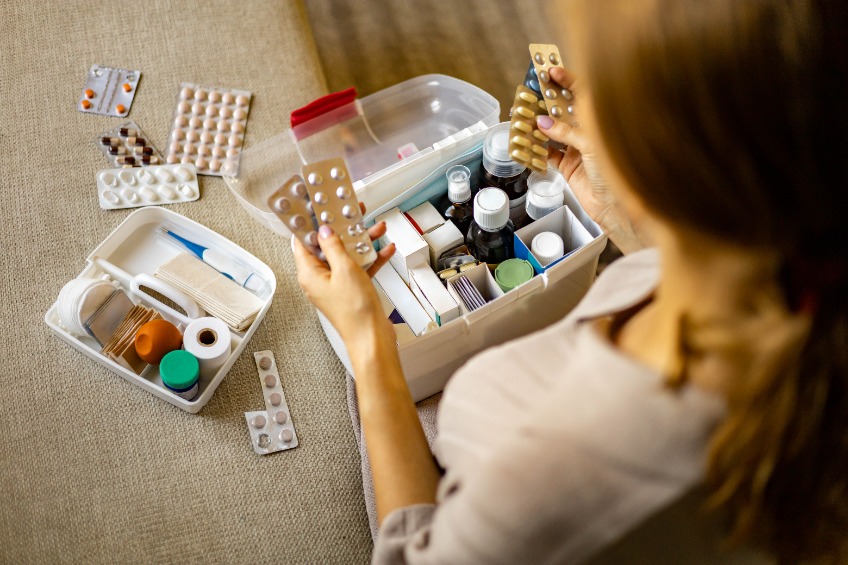How Does Compounding Help Patients with Rare Allergies?

For patients living with rare allergies, navigating the world of modern medicine can be frustrating—and sometimes dangerous. From inactive ingredients in tablets to preservatives in injectables, even trace amounts of allergens can trigger serious reactions in sensitive individuals. That’s where personalized medicine becomes not just helpful, but vital. At Alpine Compounding Pharmacy, patients with rare or multiple allergies find tailored treatment solutions that eliminate harmful ingredients and prioritize safety without compromising therapeutic effectiveness.
The Hidden Threat: Inactive Ingredients with Active Consequences
When people think of drug allergies, they often think about reactions to active pharmaceutical ingredients (APIs). However, for patients with rare sensitivities, the real problem often lies in the excipients—the so-called “inactive” ingredients used in commercial drug manufacturing. These may include:
- Dyes and colorants
- Preservatives (e.g., parabens, benzyl alcohol)
- Binders and fillers (e.g., lactose, gluten, cornstarch, gelatin)
- Sweeteners or flavorings
- Lubricants (e.g., magnesium stearate)
These substances are added to improve shelf-life, taste, stability, or ease of manufacturing. But for patients with rare or complex allergies, even minuscule amounts can result in reactions ranging from rashes and gastrointestinal distress to anaphylaxis.
Commercial pharmaceutical companies rarely offer alternatives that are free of all potential allergens, simply because it’s not economically viable to cater to a small subset of patients. This is where compounding becomes an essential part of care.
What Is Pharmaceutical Compounding?
Pharmaceutical compounding is the science of creating customized medications from scratch or by modifying existing formulations to suit an individual patient’s needs. Licensed compounding pharmacies work closely with prescribers to develop medications that are:
- Free from allergens or irritants
- Available in unique dosages or strengths
- Delivered in the most suitable form (capsule, suspension, cream, suppository, etc.)
- Combinations of multiple ingredients when needed
Alpine Compounding Pharmacy specializes in this type of bespoke medication development, using only pharmaceutical-grade ingredients and following strict regulatory standards.
How Compounding Helps Patients with Rare Allergies
1. Elimination of Specific Allergens
Perhaps the most direct benefit of compounding is the ability to remove ingredients a patient is allergic to. For example:
- A lactose-intolerant patient can receive a compounded capsule using a lactose-free filler.
- Someone with a gluten allergy can get medication that’s 100% gluten-free.
- Patients with dye allergies can avoid synthetic colorants altogether.
Each compounded prescription is prepared specifically for the individual, ensuring it contains only what is necessary and nothing that could provoke a reaction.
2. Custom Dosage and Formulation
Many patients with rare allergies are children, elderly individuals, or those with multiple medical conditions who also need adjusted dosages or alternative routes of administration. Compounding allows for:
- Liquid formulations for those who can’t swallow pills
- Suppositories for patients with gastrointestinal sensitivities
- Transdermal creams for localized treatment without systemic absorption
- Sublingual drops for faster absorption without exposure to gut-related allergens
3. Combination Therapies Without Extra Excipients
Patients managing multiple conditions often take several medications daily. Combining multiple active ingredients into one compounded preparation not only simplifies the regimen but also reduces exposure to additional excipients found in each individual commercial product. This is especially critical for allergy-sensitive patients.
4. Micro-dosing and Titration
For highly sensitive individuals, starting with a full therapeutic dose may be risky. Compounded medications allow for micro-dosing, where the pharmacist prepares extremely low doses that can be gradually increased under supervision. This approach is often used in desensitization or allergen immunotherapy protocols.
Real-Life Applications
Here are just a few real-world examples of how compounding benefits allergy-prone patients:
- Case 1: A child with autism and multiple food sensitivities needs an antiepileptic drug without artificial dyes or gluten. A compounded oral suspension using natural flavorings and dye-free ingredients allows for safe administration.
- Case 2: An adult with mast cell activation syndrome (MCAS), sensitive to preservatives and dyes, is prescribed compounded antihistamines without inactive excipients that could trigger a flare-up.
- Case 3: A cancer patient undergoing chemotherapy reacts to the preservative in standard anti-nausea medications. A preservative-free injectable is compounded, providing the same relief without allergic side effects.
The Role of the Pharmacist: Partner in Personalized Care
Creating safe, effective, allergen-free medications is not just about removing ingredients—it’s about understanding the full clinical picture. At Alpine Compounding Pharmacy, experienced pharmacists collaborate closely with prescribers and patients to:
- Review allergy history and sensitivity reports
- Select compatible, pharmaceutical-grade ingredients
- Use equipment that prevents cross-contamination
- Maintain meticulous records for consistency and safety
This high level of individualized attention ensures that allergy sufferers are not only protected from reactions but empowered to take control of their health.
Safety and Regulatory Considerations
While compounded medications are not FDA-approved (each preparation is unique), they are regulated by state boards of pharmacy and must comply with standards such as USP <795>, <797>, and <800>. Reputable compounding pharmacies like Alpine follow strict protocols, including:
- Batch testing for purity and potency
- Sterile compounding environments when required
- Rigorous documentation and quality control
Final Thoughts
For patients with rare or complex allergies, the path to treatment can be filled with trial and error, fear, and frustration. But personalized solutions do exist. Compounding pharmacies, particularly those like Alpine Compounding Pharmacy, are transforming allergy care by crafting medications that work with the patient’s body—not against it.
If you or a loved one has struggled to find safe medications due to allergies, it’s time to consider the power of personalized compounding. Because when it comes to rare conditions, customized care isn’t just an option—it’s a necessity.
